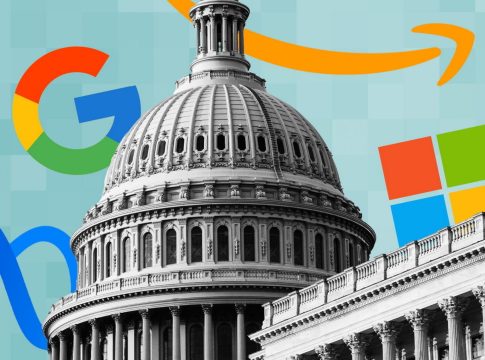Big Tech’s Bold Move: Seeking a 10-Year Moratorium on State AI Regulations
In an era where artificial intelligence (AI) is transforming industries at breakneck speed, major technology firms are advocating for a decade-long pause on state-level regulations governing AI technology in the United States. This initiative has sparked considerable debate among lawmakers, industry experts, and advocates for consumer rights, as it raises crucial questions about governance, innovation, and ethical responsibility.
The Push from Industry Giants
Key players in the tech sector, including giants like Google, Microsoft, and Amazon, are lobbying for a unified federal regulatory framework for AI, rather than allowing individual states to impose their own rules. They argue that a patchwork of state regulations could stifle innovation and lead to inconsistent standards across the country.
What’s at Stake?
- Innovation vs. Regulation: Proponents of the moratorium believe that establishing a single set of rules could foster a more conducive environment for technological advancement. They claim that navigating a maze of state laws would deter investment in AI research and development.
- Consistency in Standards: A national approach would ensure that all tech companies, regardless of their location, adhere to the same regulations, reducing confusion and increasing compliance efficiency.
Implications for Society and Business
While the intentions behind this proposal may seem noble—streamlining regulations to promote growth—the ramifications could be far-reaching. A decade without state oversight raises concerns regarding consumer protection, data privacy, and ethical AI usage.
- Consumer Safety: Critics warn that without state regulations, companies might prioritize profits over the welfare of users. Issues such as data breaches, algorithmic bias, and misuse of AI could escalate, potentially harming individuals and communities.
- Historical Context: The tech industry has faced similar challenges in the past, particularly during the early days of the internet when companies operated largely unchecked. The resulting issues prompted governments to intervene, leading to regulations like the General Data Protection Regulation (GDPR) in Europe.
The Call for Thoughtful Regulation
Advocates for responsible AI use emphasize that a balanced approach is necessary. They argue that any regulatory framework should not only encourage innovation but also safeguard the public interest.
- Collaborative Efforts: Instead of a blanket ban on state regulations, some suggest that tech companies collaborate with lawmakers to develop frameworks that address both innovation and ethical concerns. This model could facilitate a more flexible and responsive regulatory environment.
Final Thoughts
As discussions around AI regulations intensify, the balance between fostering technological advancement and protecting societal interests remains precarious. The call for a 10-year moratorium is emblematic of a broader struggle within the tech industry: how to innovate responsibly in a rapidly evolving landscape.
The potential fallout from this proposal will likely shape the future of AI governance in the United States for years to come, making it imperative for stakeholders from all sides to engage in constructive dialogue. With AI’s capabilities growing ever more powerful, the decisions made today could have lasting impacts on both technology and society as a whole.

Writes about personal finance, side hustles, gadgets, and tech innovation.
Bio: Priya specializes in making complex financial and tech topics easy to digest, with experience in fintech and consumer reviews.

